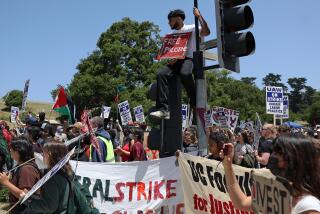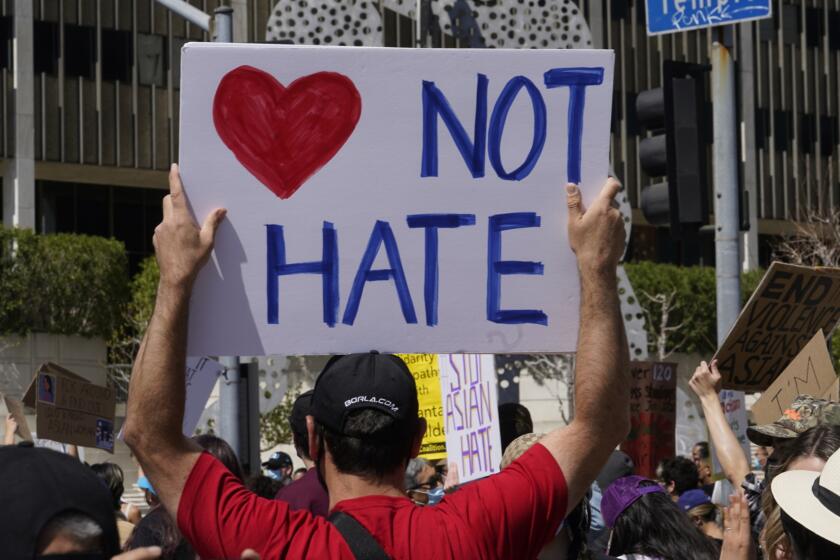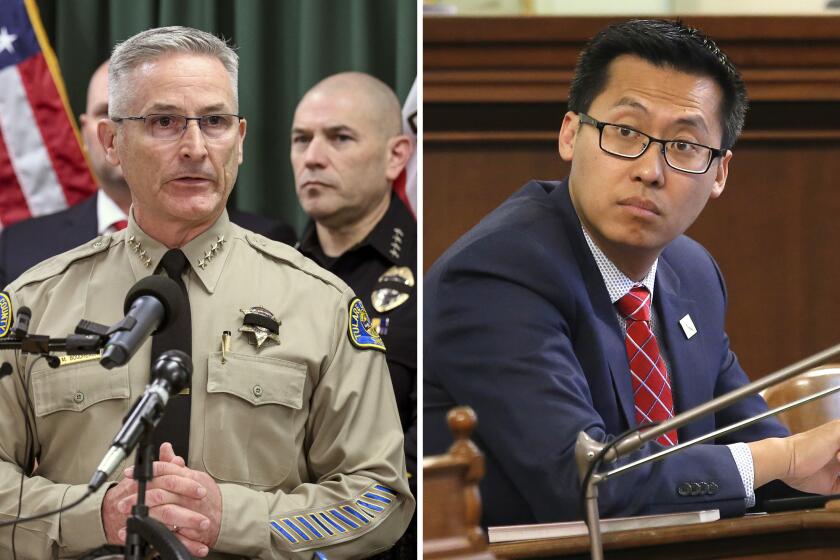State Seeks to Block Killer’s Defense Tactic
The California attorney general’s office Friday asked the state Supreme Court to deny a motion from attorneys for Stanley Tookie Williams seeking information they believe would cast doubt on the validity of his 1981 convictions on four murder charges.
Williams, 51, co-founder of the Crips gang, is scheduled to be executed Dec. 13 at San Quentin State Prison. His lawyers have asked Gov. Arnold Schwarzenegger to grant clemency because of Williams’ anti-gang work in recent years. The Los Angeles County district attorney’s office and a wide array of law enforcement groups have responded with a forceful campaign against clemency.
On Nov. 10, Pasadena attorney Verna Wefald filed an 82-page motion with California’s highest court attempting to obtain information about ballistics, crime scene evidence and records about witnesses who testified against Williams in return for immunity or other benefits. Wefald asserted that Williams was entitled to material that “was not disclosed by the prosecution but should have been.”
In response, the attorney general’s office said that, under a 2003 California law enacted in the aftermath of the Los Angeles Police Department’s Rampart corruption scandal, the motion was untimely and exceeded the limited scope of discovery that can be ordered.
Deputy Atty. Gen. Lisa J. Brault cited the first major state Supreme Court decision interpreting the new law, which said a filing must be made “within a reasonable time period.”
“A nearly three-year delay in filing ... cannot be construed as being a ‘reasonable time period,’ ” Brault wrote.
In this case, Brault asserted, Williams “has known for more than three years of the need to develop another state habeas corpus petition” because the U.S. 9th Circuit Court of Appeals had already denied him relief, “and even suggested to [Williams] in 2002 that he consider seeking alternate relief via a clemency petition.”
A habeas corpus petition is the centuries-old method of contesting an allegedly unconstitutional imprisonment. The state Supreme Court has denied four habeas corpus petitions filed by attorneys on Williams’ behalf.
Wefald’s motion is not asking the court to halt the execution. Rather, it is a discovery motion seeking information that could form the basis of another habeas corpus petition on Williams’ behalf that could lead to a stay of execution.
Some of the evidence to which Wefald is seeking access is in the custody of the Los Angeles County Superior Court clerk’s office.
Brault said in her brief that Williams “could have examined such evidence through ordinary public access at any time during the 20-plus years it has been in the Superior Court’s custody. Indeed, even before the shotgun evidence was admitted into evidence, the district attorney’s office made it available” to Williams’ attorneys for examination.
Williams has had several lawyers over the years. Wefald began working on the case earlier this year.
She is the first of his numerous attorneys to raise questions about the ballistics evidence in his case. She has retained David L. Lamagna, a Massachusetts scientist who is president of American Forensic Technologies, who said the ballistics testimony offered by a sheriff’s deputy at Williams’ trial was “junk science at best.”
That was a reference to Sheriff’s Sgt. James Warner’s conclusion that a shotgun shell recovered at the scene of one of the slayings could only have come from a shotgun that Williams owned. After initial testing, Warner said he could not determine if the shell came from that shotgun because there were “not enough” characteristics for a “positive comparison,” but after retesting he changed his mind. Lamagna said Warner lacked adequate foundation for his conclusions.
Brault responded, however, that Lamagna’s contentions “are based upon innuendo, supposition, and ... patent bias ... not upon allegations of fact.”
More to Read
Start your day right
Sign up for Essential California for news, features and recommendations from the L.A. Times and beyond in your inbox six days a week.
You may occasionally receive promotional content from the Los Angeles Times.






